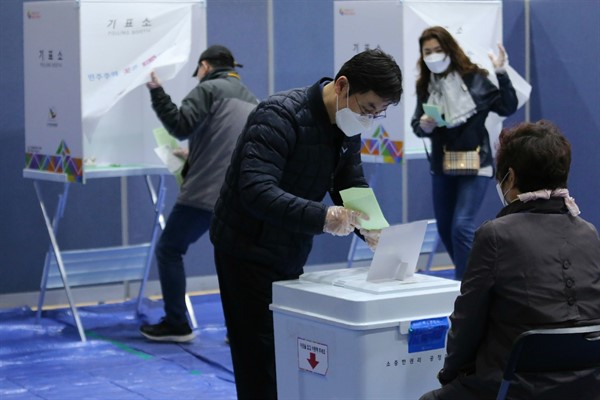The coronavirus pandemic has created a vexing challenge for democratic societies: How to safely hold free and fair elections. Some countries that saw early success in containing the spread of COVID-19, like South Korea, have been able to hold national elections safely, while a slew of others have been forced to postpone their votes.
The pandemic has also changed the facts on the ground for independent election observers. For this week’s interview on Trend Lines, WPR’s Elliot Waldman is joined by David Carroll, director of the Democracy Program at the Carter Center. He has participated in dozens of observation missions in elections around the world and has been at the forefront of efforts to develop standards and best practices for global election observation. Click here to read a transcript of an excerpt from the interview.
Listen:
Download: MP3
Subscribe: Apple Podcasts | RSS | Spotify
Relevant Articles on WPR:
How to Protect Democratic Institutions During the Coronavirus Pandemic
Democracy Will Survive the Coronavirus Pandemic, but Not Without a Fight
Amid Repression and Scrutiny of the OAS, Bolivia Staggers Toward an Election Rerun
As COVID-19 Hits Myanmar, Aung San Suu Kyi and the Military Seek an Electoral Edge
With the U.S. Backsliding, Who Will Defend Democracy in the World?
If you like what you hear on Trend Lines and what you’ve read on WPR, you can sign up for our free newsletter to get our uncompromising analysis delivered straight to your inbox. The newsletter offers a free preview article every day of the week, plus three more complimentary articles in our weekly roundup every Friday. Sign up here. Then subscribe.
Trend Lines is produced and edited by Peter Dörrie, a freelance journalist and analyst focusing on security and resource politics in Africa. You can follow him on Twitter at @peterdoerrie.
To send feedback or questions, email us at podcast@worldpoliticsreview.com.

